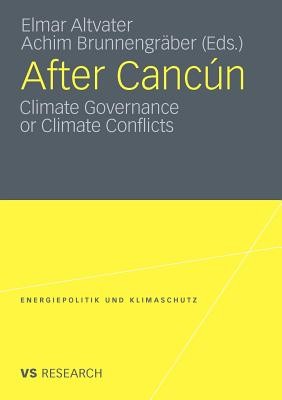
- We will send in 10–14 business days.
- Publisher: VS Verlag für Sozialwissenschaften
- Year: 2011
- Pages: 189
- ISBN-10: 3531182919
- ISBN-13: 9783531182919
- Format: 14.8 x 21 x 1 cm, minkšti viršeliai
- Language: English
- SAVE -10% with code: EXTRA
After Cancún (e-book) (used book) | bookbook.eu
Reviews
Description
The world is facing several serious challenges at the close of the fossil and nuclear energy the limited resources of cheap conventional oil can only be surmounted by tapping unconventional oil reserves, e.g. deep sea oil. The explosion of the oil platform Deepwater Horizon in 2010 and the subsequent oil spill caused enormous damage, which even a year later cannot be fully estimated. Another even more important threat emanating from the fossil and nuclear energy regime has been brought to our attention by the Fukushima disaster. Last but not least, the problem of climate change caused by an increase in greenhouse gas emissions is looming, despite the fact that the international community has agreed on a considerable reduction of these emissions. Is this poor result of the Kyoto Protocol and the failure of successive climate conferences the consequence of a preference for the use of market-based instruments? The majority of climate scientists, economists, and politicians believe in the efficiency of “cap-and-trade” regulations. They even conceive them as a constituent ingredient of a “Green New Deal” or “Global Green Recovery”. The contributions in this volume provide a critical examination of the theoretical foundations, the political implications, and the empirical experiences of the application of market mechanisms and financial instruments to climate policy.
EXTRA 10 % discount with code: EXTRA
The promotion ends in 22d.22:56:18
The discount code is valid when purchasing from 10 €. Discounts do not stack.
- Publisher: VS Verlag für Sozialwissenschaften
- Year: 2011
- Pages: 189
- ISBN-10: 3531182919
- ISBN-13: 9783531182919
- Format: 14.8 x 21 x 1 cm, minkšti viršeliai
- Language: English English
The world is facing several serious challenges at the close of the fossil and nuclear energy the limited resources of cheap conventional oil can only be surmounted by tapping unconventional oil reserves, e.g. deep sea oil. The explosion of the oil platform Deepwater Horizon in 2010 and the subsequent oil spill caused enormous damage, which even a year later cannot be fully estimated. Another even more important threat emanating from the fossil and nuclear energy regime has been brought to our attention by the Fukushima disaster. Last but not least, the problem of climate change caused by an increase in greenhouse gas emissions is looming, despite the fact that the international community has agreed on a considerable reduction of these emissions. Is this poor result of the Kyoto Protocol and the failure of successive climate conferences the consequence of a preference for the use of market-based instruments? The majority of climate scientists, economists, and politicians believe in the efficiency of “cap-and-trade” regulations. They even conceive them as a constituent ingredient of a “Green New Deal” or “Global Green Recovery”. The contributions in this volume provide a critical examination of the theoretical foundations, the political implications, and the empirical experiences of the application of market mechanisms and financial instruments to climate policy.


Reviews